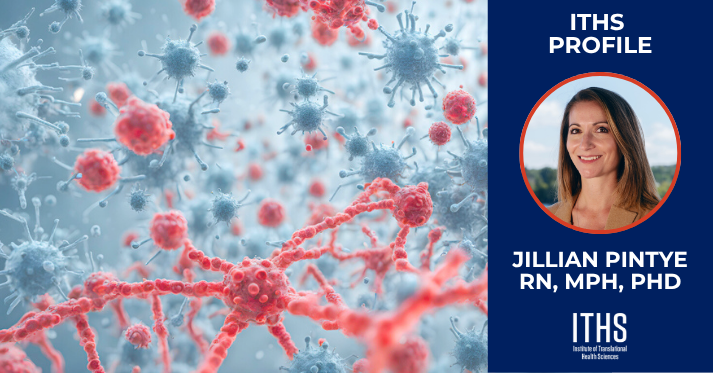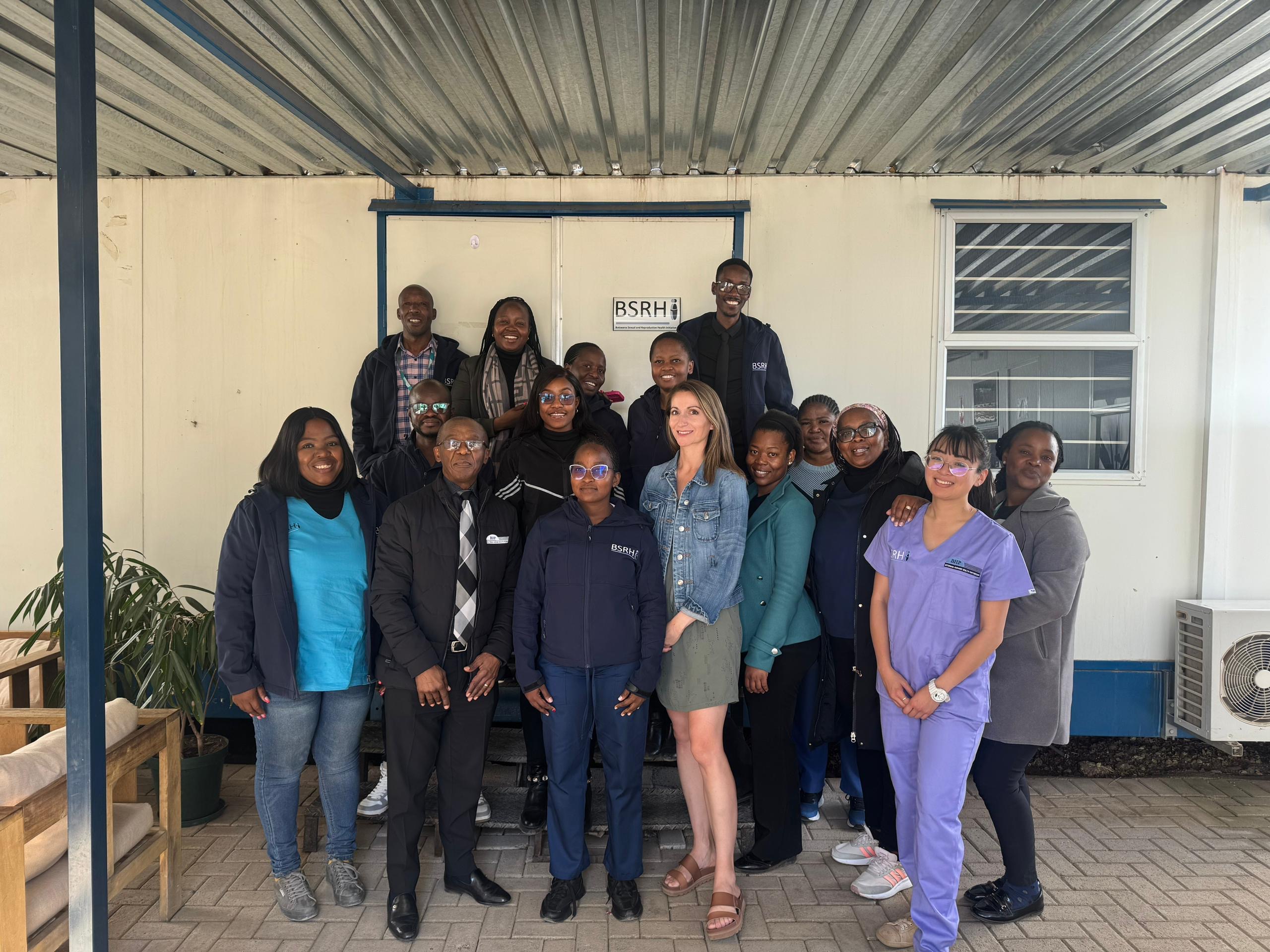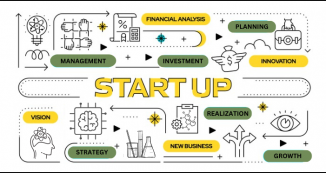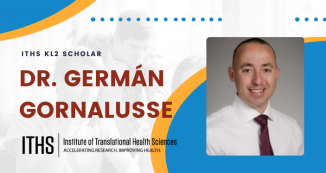
30 Oct Journey from ITHS TL1 Trainee to TL1 Faculty Co-Director
In this installment of the ITHS profile series, we sat down with Dr. Jillian Pintye to learn more about her research in HIV and STI prevention and treatment for women during pregnancy and her new role as the Faculty Co-Director of the ITHS TL1 Program. Dr. Pintye is an associate professor with a joint appointment at the University of Washington (UW) School of Nursing and the School of Public Health. In addition to her faculty appointments, she is affiliated with the International Clinical Research Center (ICRC) and the Global Center for Integrated Health of Women, Adolescents and Children (Global WACh), and is an Research Associate with the Botswana Harvard Health Partnership.
In this conversation, Dr. Pintye shares insights from her time as a Peace Corps Volunteer in Botswana, and her focus on developing HIV and STI interventions for routine maternal and child health systems.
Hi Jillian, thank you for sitting down with us today! Could you start by sharing more about your research focus?
Jillian Pintye: Of course, my research focuses on how we can improve HIV and STI prevention and treatment for women, specifically during pregnancy and postpartum. This is a critical period, not just for women’s own health, but also for child health outcomes that extend beyond infancy. Much of my work looks at how new biomedical prevention tools can be safely and effectively integrated into routine maternal and child health services. Our team currently leads several studies focused on STI and HIV testing, prevention, and treatment during pregnancy. All our studies are conducted in public health clinics in Kenya and Botswana. We test interventions that can be integrated into routinely offered services and programs. That way, we are evaluating not just if something can work, but how it can work within actual healthcare systems. This process allows us to expedite interventions into practice as quickly as possible. The goal is always to generate evidence that directly informs policy and programs in real world settings, both locally and globally. Ultimately, I hope that our work advances HIV and STI prevention and treatment strategies that reflect the context women’s lives as well as increase accessibility to scientific innovations.
Ultimately, I hope that our work advances HIV and STI prevention and treatment strategies that reflect the context women’s lives as well as increase accessibility to scientific innovations.
Can you talk a little bit about what lead you to this field of study?
Jillian Pintye: My current research interests began during my time as a Peace Corps Volunteer in Botswana. After my undergraduate education in nursing, I was a Fulbright Scholar in Denmark where I studied public health and worked as a graduate research assistant for a professor of global health. While I was in Denmark, I applied for the Peace Corps and was assigned to serve in Botswana. Although Botswana had one of the highest HIV prevalence rates in the world at the time, the country made incredible progress in expanding HIV treatment in maternal health systems and is a global leader in eliminating vertical HIV transmission. That experience motivated me to pursue public health science as a bridge between clinical nursing and improving health at the population level through research.
ITHS has been a fantastic resource in building my research program, but more importantly, in building my research network as an early career investigator.
What keeps you motivated to continue this work?
Jillian Pintye: My early formative experiences and my personal connection to the work keep my research interests very much alive. I am committed to answering scientific questions that affect millions of women’s lives around the world and in my community. I am lucky
to work with a talented team of individuals from across multiple institutions here at UW, in Kenya, and in Botswana. We genuinely love working together, which keeps the work fun and enjoyable, despite facing many challenges. It is the incredible team with whom I am honored to work and my personal commitment to improving global women’s health that motivates me.
What can you see happening with your research in the next five years?
Jillian Pintye: This is a tough one, but I will answer it optimistically. I see my research moving towards evaluating new biomedical tools, such as long-acting HIV pre-exposure prophylaxis and point-of-care STI diagnostics. I would like the next phase of our team’s work to ensure these innovations move beyond the initial clinical trials. Routine healthcare settings are where these innovations will truly have the most transformative impact. ITHS really reinforces the importance of dissemination planning as part of the research process and encourages investigators to have a clear and comprehensive dissemination plan from the very beginning. You do this level of work to have the highest impact possible.
You have been in the ITHS network for a while! How has ITHS been supportive of your goals during your career journey?
Jillian Pintye: ITHS has been a fantastic resource in building my research program, but more importantly, in building my research network as an early career investigator. For example, ITHS funded my TL1 project which developed an empiric risk assessment tool for identifying pregnant women most likely to benefit from HIV pre-exposure prophylaxis. Our HIV risk assessment tool was cited in the World Health Organization’s guidelines for HIV pre-exposure prophylaxis delivery in pregnancy and was also used in multiple subsequent clinical trials. ITHS also opened networking opportunities to collaborate with colleagues across disciplines who share the same translational mindset. ITHS gave me a solid foundation in team science and helped me see how to move research beyond the clinic into practice. This is because there is such an intentionality built into training a team that has distinct roles designed for success.
Could you share a little bit about your role as the new faculty co-director of the ITHS TL1 program?
Jillian Pintye: I am so excited to step into this position! The ITHS TL1 program was so formative for me, and I am really looking forward to giving back by supporting trainees and helping to shape their own research paths. What really excites me most is helping create opportunities for interdisciplinary learning and mentorship, things that can truly accelerate someone’s career and help foster new partnerships for them. As a nurse scientist, my work is inherently interdisciplinary, and some of my current collaborators are fellow investigators affiliated with ITHS, including fellow TL1 and KL2 alumni such as Dr. Liz Harrington and Dr. Lexi Vasbinder, to name a few. So, it is exciting to share our collaborations as examples for our students.
From a program leadership perspective, how do you envision the future of the TL1 program?
Jillian Pintye: I would love to see the ITHS TL1 program continue to grow as a hub for cross-disciplinary collaboration across the WWAMI region. My hope is that trainees leave empowered to pursue bold and innovative translational research and see themselves as a part of a supportive community through ITHS and beyond the TL1 program. My goal is to support our TL1 trainees as they build their research careers and make a positive public health impact.









